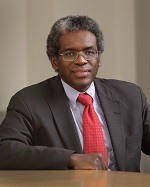
Roland A. Owens, Ph.D.
Acting Deputy Director for Intramural Research
B.S., University of Maryland, Baltimore County, 1979
Ph.D., The Johns Hopkins University, 1985
Dr. Owens has been Principal Deputy Director of OIR since 2024. He began his NIH career in 1985, as a National Research Service Award Fellow in the National Institute of Child Health and Human Development. In 1988 he received an Intramural Research Training Award in the National Institute of Diabetes and Digestive and Kidney Diseases (NIDDK). He became a Principal Investigator (PI), in NIDDK in 1992 and was tenured in 1998. His research focused on adeno-associated virus type-2 (AAV2). He is a co-inventor on two patents involving AAV2 gene therapy applications. He served on the editorial board of Journal of Virology from 1997-2002 and was a member of the NIH Central Tenure Committee from 2000-2002.
Dr. Owens moved to OIR in 2008. He has been involved in recruitment and mentoring of faculty-level intramural researchers. He has assisted with the recruitment of more than 300 NIH PIs. In 2010, Dr. Owens won an NIH Director’s Award for co-leading the NIH-wide Earl Stadtman tenure-track investigator search. In 2021, he won an NIH OD Honor Award as part of the implementation team for the Senior Biomedical Research and Biomedical Product Assessment Service. His current duties include coordination of the OIR program support team and serving as part of the OIR leadership teams for risk management, performance evaluation, and strategic planning.
This page was last updated on Tuesday, September 30, 2025